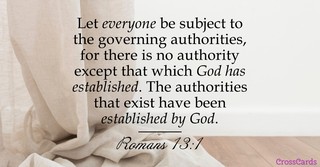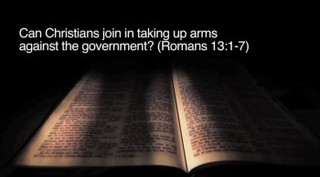
Change Translation
- Recent Translations
- All Translations
10
Ahavah (agape) does no wrong to the re’a (neighbor); therefore the fulfillment of the Torah is ahavah.
More:
Love Verses
Images for Kehillah in Rome 13:10

Videos for Kehillah in Rome 13:10
Kehillah in Rome 13:10 Meaning and Commentary
Romans 13:10
FOOTNOTES:
F4 Zohar in Deut. fol. 111. 3.
F5 Zohar in Deut. fol. 113. 1.
F6 Moses Kotsensis Mitzvot Tora, praecept. affirm. 3. prope finem.
Love worketh no ill to his neighbour
That is, the man that truly loves his neighbour, will contrive no ill against him, nor do any to him; he will not injure his person, nor defile his bed, nor deprive or defraud him of his substance; or do hurt to his character, bear false testimony against him, or covet with an evil covetousness anything that is his; but, on the contrary, will do him all the good he is capable of:
therefore love is the fulfilling of the law:
so far as a man loves his neighbour, he acts agreeably to the law, and the particular precepts of it above mentioned: what the apostle says of love to the neighbour, the Jews frequently say of love to God;
``he that loveth God (they say F4) (Nryma rve Myyqm) , "hath fulfilled the decalogue", both above and below.''And again F5,
``there is no service like the love of God, R. Abba saith it is (atyyrwad allk) , "the sum of the law"; for the ten words of the law (wlylkta akh) , "are herein comprehended", or "fulfilled":''and elsewhere F6 they observe,
``that (hbhab hlwlk hrwth lk) , "the whole law is comprehended", or fulfilled "in love".''
F4 Zohar in Deut. fol. 111. 3.
F5 Zohar in Deut. fol. 113. 1.
F6 Moses Kotsensis Mitzvot Tora, praecept. affirm. 3. prope finem.
Taken from John Gill's Exposition of the Bible
Unlock Deeper Insights: Get Over 20 Commentaries with Plus! Subscribe Now
Kehillah in Rome 13:10 In-Context
8
Owe, be indebted, obligated nothing to anyone except a choiv (debt) of ahavah (love); for he who has ahavah has fulfilled the Torah.
9
For the mitzvoh, LO TIN’AF, LO TIRTZACH, LO TIGNOV, LO TACHMOD, SHEMOT 20:13-15,17; DEVARIM 5:17-19,21) and any other of the mitzvot (commandments) is akitzur (restated, in summary), in this dvar Torah, V’AHAVTA L’RE’ACHA KAMOCHA ("You shall love your neighbor as yourself" VAYIKRA 19:18.)
10
Ahavah (agape) does no wrong to the re’a (neighbor); therefore the fulfillment of the Torah is ahavah.
11
Besides this, you have da’as of the zman, that it is already the hour for you to wake up from sheynah (sleep), for now is Yeshu’at Eloheinu nearer than when we became ma’aminim (believers).
12
The Lailah (Night) (of the old epoch) is far advanced, and HaYom [Yom HaDin, the Day of Judgment] is imminent, at hand. Let us therefore take off the dark cloak of the deeds of choshech, ridding ourselves of it, and let us put on the neshek (weapons 6:13) of Ohr (light).
The Orthodox Jewish Bible fourth edition, OJB. Copyright 2002,2003,2008,2010, 2011 by Artists for Israel International. All rights reserved.
